Kevin McCloud reveals how AI will affect the Grand Designs of the future
Exclusive: ‘It going to be so much easier’
Kevin McCloud has revealed how he believes artificial intelligence will help shape the Grand Designs of the future as the show celebrates its 25th anniversary.
Speaking exclusively to The Independent ahead of Grand Designs Live, McCloud said AI will be an “empowering tool” that could streamline the processes, which the show has famously often documented going awry.
“I think AI is going to really affect architectural design – it's going to be so much easier to replicate design patterns, to use AI to produce renderings, drawings, prototype models, and solve problems,” he said.
McCloud, an advocate for sustainable design and practices, believes AI could be particularly useful in this area.
“I think the matching of technologies with AI producing thin film, infrared, heating elements, or stick-on solar panels, which use one-thousandths of the resources than conventional solar panels, is where it gets really interesting.”
The host said he believes a move towards more sustainable designs and building practices will characterise the next 25 years of Grand Designs.
“I think what we've seen over the past 25 years is we've seen an increased use of synthetic materials in buildings,” he said.
McCloud, who has a time capsule for this year’s Grand Designs Live to document 25 years of the show, explained how cross-laminated timber, as an example, works.
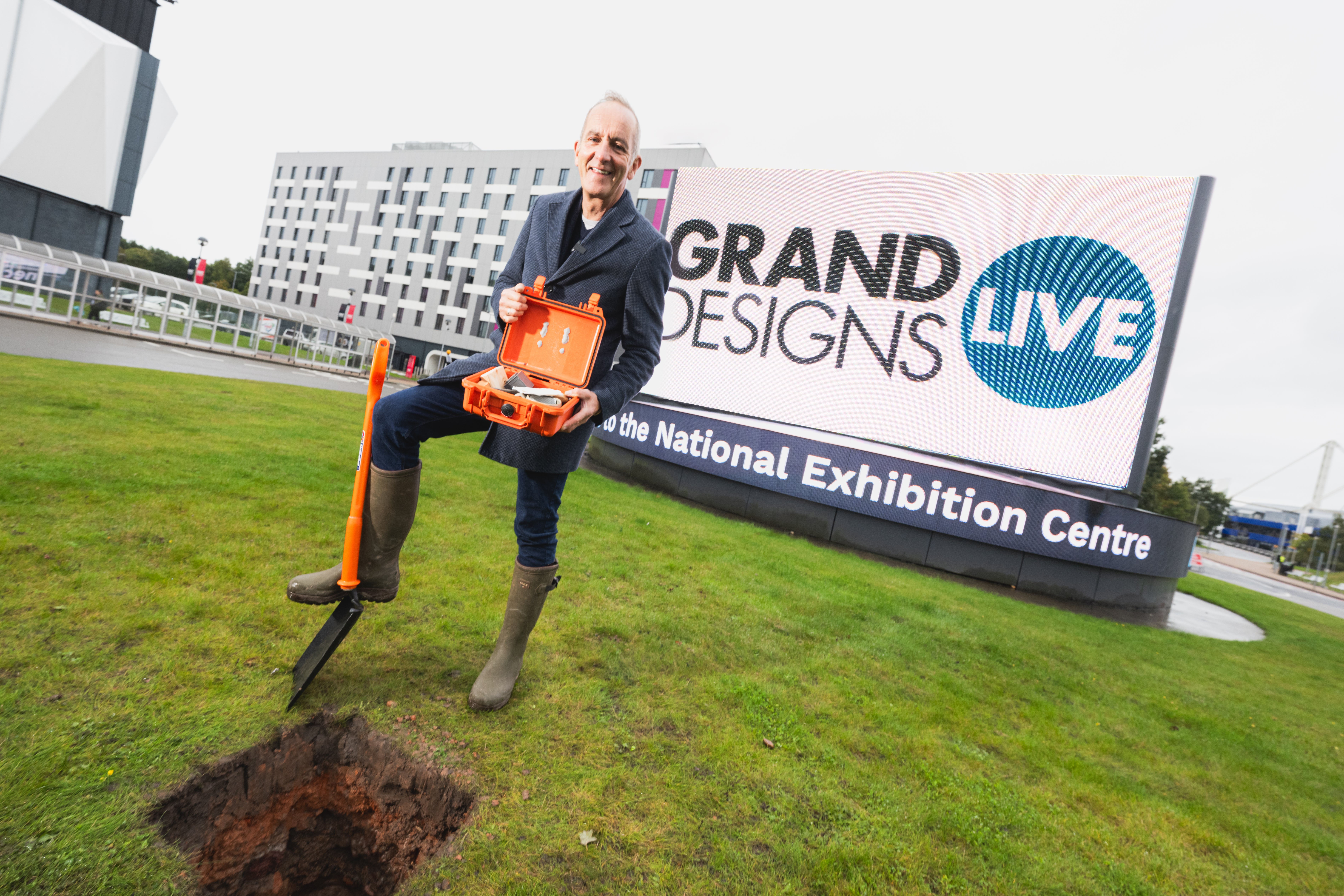
Showing a piece of wood that is made from different woods glued in varying directions, McCloud said the material is a lot stronger and more durable than traditional wooden beams as a result.
“I think in 25 years time, we'll be using much less steel [and] much less concrete too. The concrete we will be using will be zero carbon, or it'll be even carbon sequestered. Steel will be replaced by [this wood]. We'll be using a lot more laminated timber – and it'll be homegrown.”
Grand Designs Live, which is taking place this week in Birmingham, contains several exhibits that reflect on the show’s history as well as a home itself, which showcases the latest innovations in design.
“We're having group conversations on stage between somebody whose house was featured in 2004 and somebody who was featured in 2024 and sort of revisiting some of the great moments of the past 25 years,” McCloud explained.
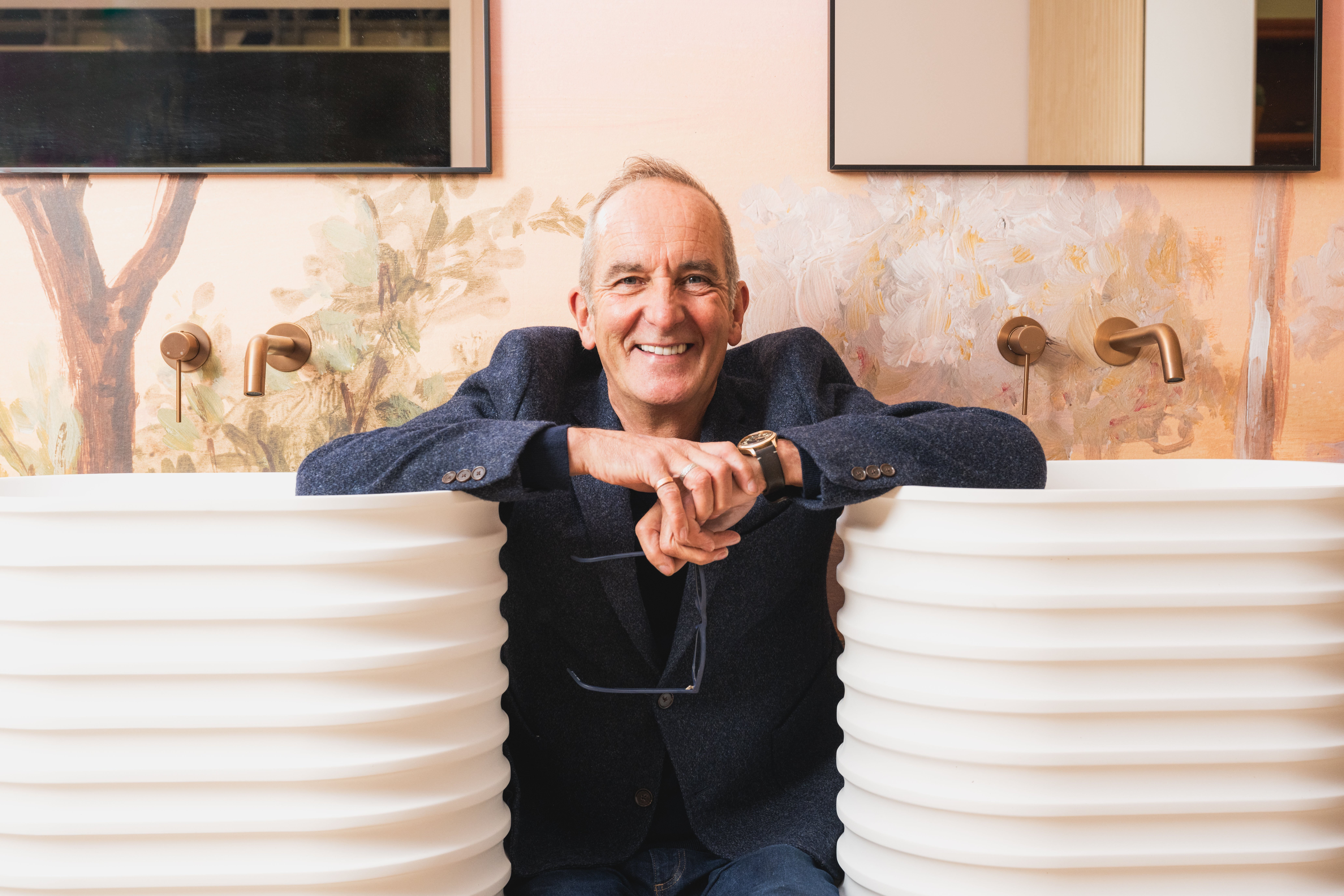
Reflecting on the success of the show, which is currently airing a special 25th-anniversary series, McCloud said it is hard to pick a favourite property or properties because his list of his favourite Grand Designs is changing all of the time.
“Paddy’s house in Northern Ireland is definitely in my top 10, which is built out of four shipping containers, and then there’s Rebecca’s house in Northern Skye, which is just beautiful,” he said.
“But this autumn, there's a brand-new favourite. It's my top five or something. And so it's always changing a bit.”

Acknowledging that the builds don’t always go to plan, McCloud said he strives to take a least one positive away from even the most disastrous Grand Design but admits that this is “rare”.
“I think I came up with something along the lines of, ‘Well, at least they tried’, but thank goodness. It's rare.” he said.
“We try and insulate ourselves from that by ensuring that we have projects that we think are going to finish. We don't start projects that we think are doomed by budget.”
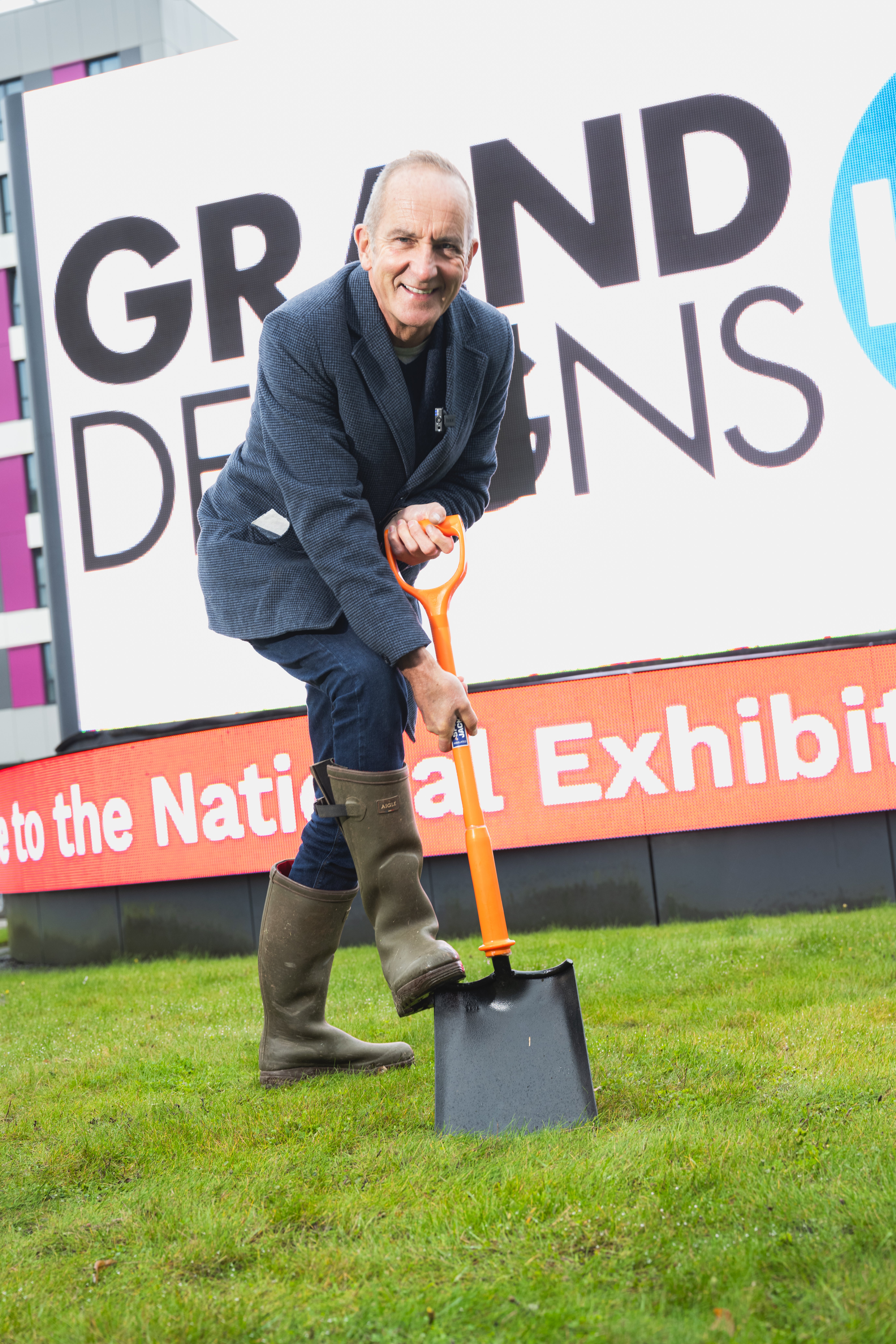
The “most interesting” builds are often made by people who have “no money at all”, McCloud added, before explaining that this is the case because they “involve using creativity.”
“Olaf and Fritha’s [triangle house in Sussex] was exactly that,” he said of the home he described as an example of “beautifully crafted, exquisite craftsmanship.”
“It was created out of extremely humble materials that in the hands of anybody else would be ugly, or in the hands of somebody with money, would mean that they've employed someone else like Olaf to do for them, which is always a bit boring.”
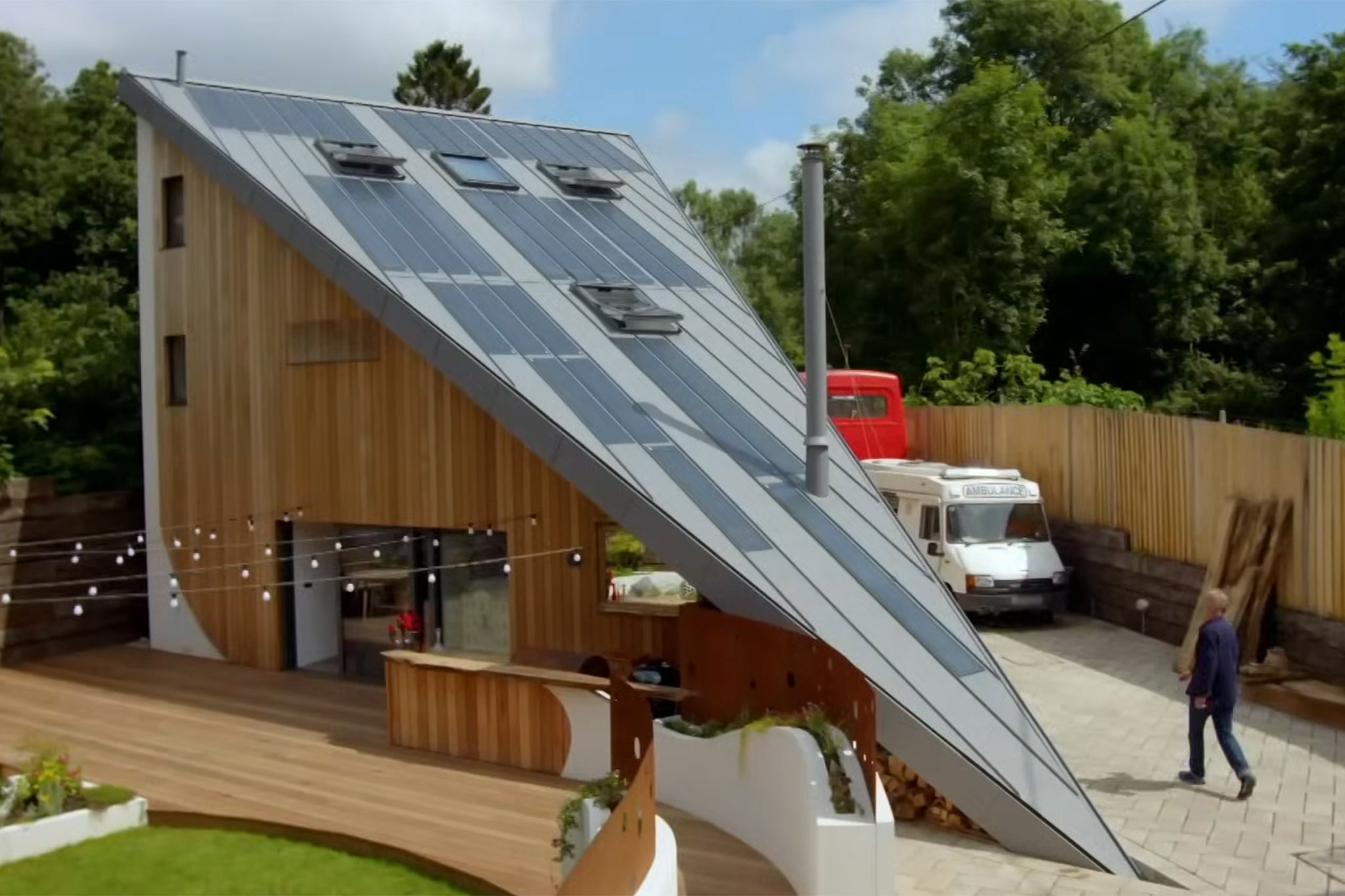
McCloud then shared up an update on a much less successful build, described by viewers as Grand Designs’ “saddest ever” build, Edward Short’s Devon lighthouse, which contributed to his divorce and left him in a state of financial ruin.
“When I spoke to him last, which was at the summer, he was doing really well and happy. He is in a new relationship now, but he is best friends with his ex-wife Hazel,” McCloud said.
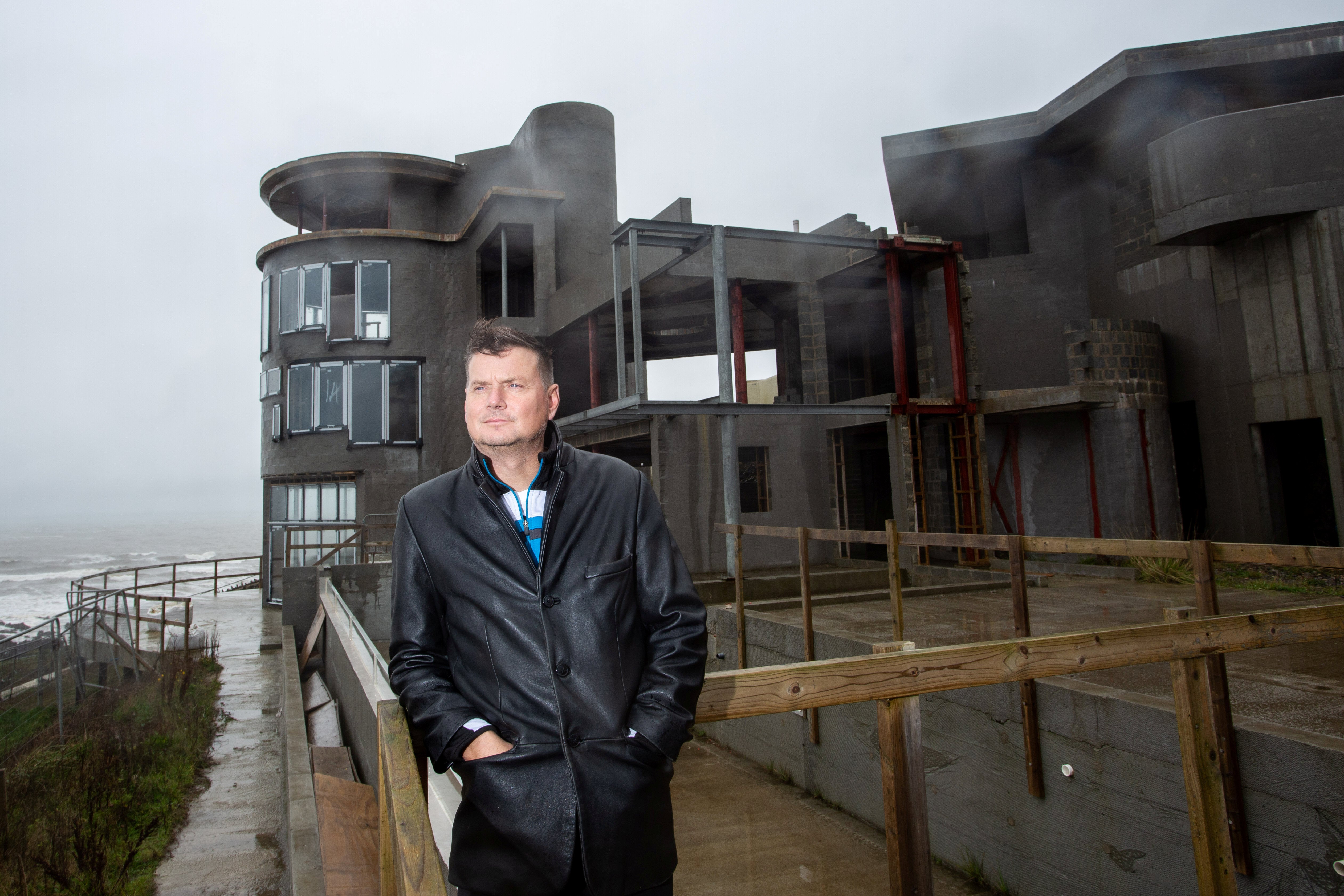
The host added: “The pain and the rawness of the wounds [created by the build] have healed and what's been left is a huge amount of learning and regret.
“I mean, you can go through therapy for 10 years, or you can build a house, and it'll go wrong, either way, you're going to come out of it probably a better human being.”
Grand Designs Live is taking place at NEC Birmingham from the 2nd to the 6th of October.
Join our commenting forum
Join thought-provoking conversations, follow other Independent readers and see their replies
Comments
Bookmark popover
Removed from bookmarks